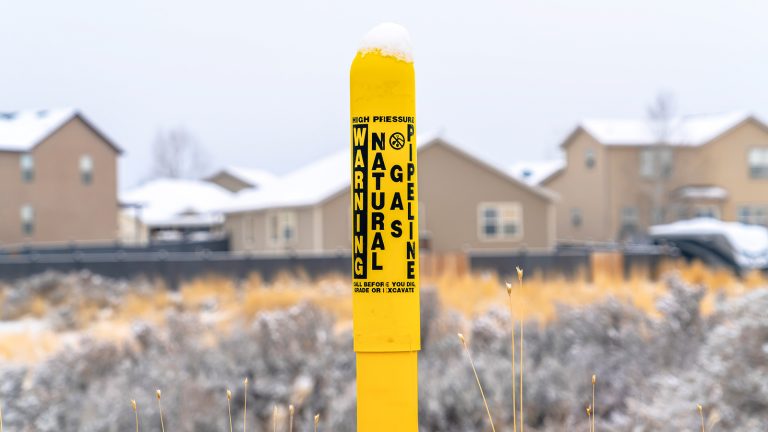
Winter is coming, and for many Americans, the colder months bring not just a chill in the air but also a significant increase in heating bills. For families and individuals already managing tight budgets, these added expenses can be overwhelming. Fortunately, there are numerous ways to save on heating costs and several programs designed to offer assistance. In this blog post, we delve into practical tips and government or private programs that can help you stay warm without breaking the bank.
Simple Tips to Reduce Heating Costs
1. Seal Leaks and Insulate
One of the most effective ways to keep your home warm is to prevent cold air from entering and warm air from escaping. Here’s how you can do it:
- Seal Doors and Windows: Use weather stripping or caulk to seal gaps around doors and windows.
- Insulate Attics and Basements: Adding insulation in these key areas can significantly reduce heat loss.
- Use Draft Stoppers: Place draft stoppers at the base of doors to prevent cold air from seeping in.
2. Adjust Your Thermostat
Lowering your thermostat by just a few degrees can result in substantial savings without compromising comfort.
- Smart Thermostats: Consider investing in a programmable or smart thermostat. These devices can optimize heating schedules based on your daily routines, ensuring you’re not wasting energy when you’re not home.
- Nighttime Adjustments: Lower your thermostat at night and use warm bedding to stay cozy.
3. Utilize Natural Heat Sources
Maximize the natural heat available during the day:
- Open Curtains: Let sunlight in during the day to naturally warm your home.
- Close Curtains at Night: Ensure you close them once the sun sets to keep the warmth inside.
4. Maintain Your Heating System
Regular maintenance can improve the efficiency of your heating system, reducing overall costs.
- Annual Servicing: Have your heating system checked and serviced annually.
- Replace Filters: Dirty filters can make your system work harder, increasing energy consumption.
5. Use Space Heaters Wisely
While space heaters can be an efficient way to heat specific areas, use them wisely to avoid high energy bills.
- Choose Energy-Efficient Models: Opt for models with timers and adjustable thermostats.
- Safety First: Always follow safety guidelines to prevent hazards.
Programs to Help You Save on Heating Costs
1. Low-Income Home Energy Assistance Program (LIHEAP)
LIHEAP is a federal program that helps low-income families with their energy bills, particularly during the winter months.
- Eligibility: LIHEAP primarily assists families with incomes below 150% of the federal poverty level.
- Benefits: The program can help with bill payments, energy crisis assistance, and weatherization improvements.
- How to Apply: Visit the LIHEAP website or contact your local LIHEAP office.
2. Weatherization Assistance Program (WAP)
WAP provides grants to improve the energy efficiency of homes for low-income families.
- Services Offered: Insulation, sealing leaks, and other energy-saving measures.
- Eligibility: Varies by state, but typically targets families below 200% of the federal poverty level.
- How to Apply: Visit the WAP website or contact your state’s weatherization office.
3. Utility Company Assistance Programs
Many utility companies offer programs to help customers manage their energy bills.
- Budget Billing: Allows you to spread payments evenly throughout the year, avoiding high winter bills.
- Discount Programs: Some utilities offer discounts for low-income households.
- Payment Plans: Many companies provide flexible payment plans to avoid disconnections.
4. State and Local Programs
In addition to federal programs, many states and localities offer their own assistance programs.
- State Websites: Check your state’s official website for information on available programs.
- Local Nonprofits: Organizations like the Salvation Army often provide emergency assistance for heating bills.
5. Energy Efficiency Rebates and Tax Credits
Upgrading your home to be more energy-efficient can provide long-term savings and may qualify for rebates or tax credits.
- Energy Star Rebates: Many appliances and home upgrades qualify for rebates through the Energy Star program.
- Federal Tax Credits: You may be eligible for federal tax credits for certain energy-efficient home improvements.
Taking Action
The combination of simple home improvements and leveraging available assistance programs can make a big difference in managing your heating costs this winter. Here’s what you can do today:
- Conduct a home energy audit to identify areas of improvement.
- Contact your utility company to learn about any available assistance programs.
- Apply for federal and state assistance programs if you qualify.
- Make small adjustments around your home to improve energy efficiency.
By taking proactive steps now, you can ensure that you and your family stay warm and comfortable throughout the winter months without the financial strain. Remember, help is available, and implementing these tips can lead to significant savings.
Stay warm and stay smart this winter!